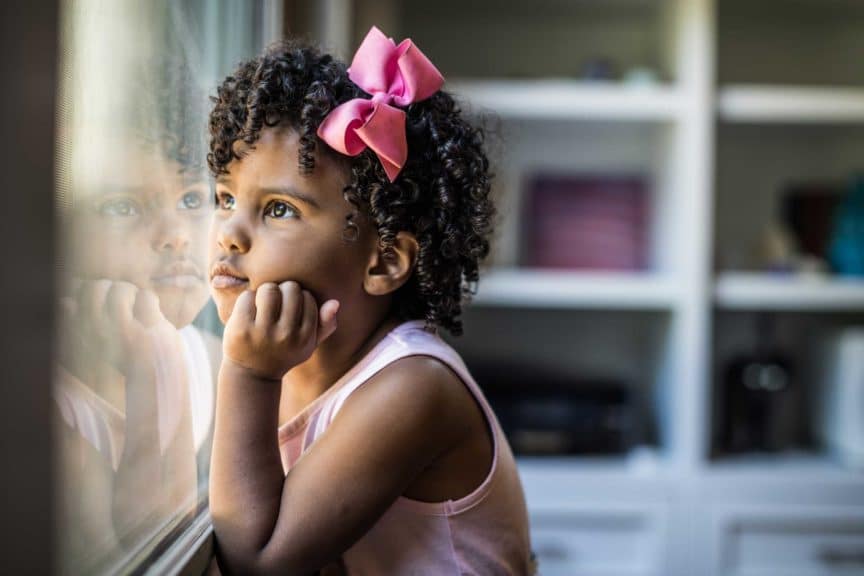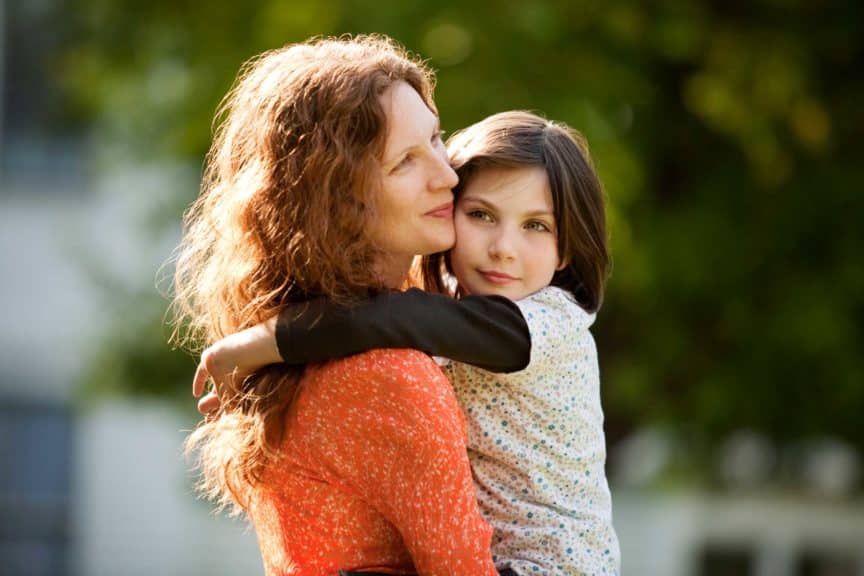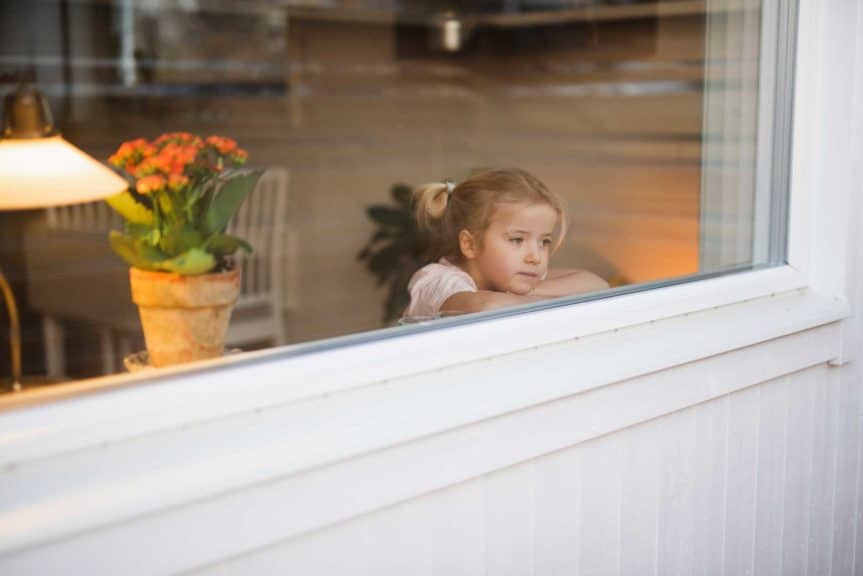Use this lesson to teach kids that God cares about their grief and help them deal with loss. Get the full lesson resources here—including a kid’s page!
- Connecting: Play a game about expressing emotions.
- Teaching: Learn about the healthy grieving process (Job 14:5; Psalm 34:18; 2 Corinthians 1:4).
- Responding: Do an activity to do to help with grief.
SUPPLIES
- Bible
- Kid’s Page
- Markers or Pencils
Note: In the lesson, you will see both bold and regular type. Bold type indicates things to read out loud to your children. Regular type indicates information for you, the parent.
Leader/Parent Devotion
Blessed are those who mourn, for they will be comforted.
Matthew 5:4
Painful things happen to all of us in this life. During this pandemic, there is a lot of uncertainty and grief over the losses we’re experiencing. Losses such as lost ability to gather as a church, lost jobs, lost connections with friends and families, and sometimes, loss of a loved one to COVID, all cause some level of grief.
As Christians and as parents, we may feel that we have to hide our grief from other people. Yet having the joy of the Lord does not mean we must deny our pain and grief.

In this session you will introduce children to 5 stages of the grieving process: denial, anger, bargaining, depression, and acceptance. The stages leading up to acceptance may bring intense, uncomfortable emotions. Some Christians may think these stages are extreme or unnecessary. This is not the case. Each stage is a natural, even healthy, step in grieving and healing.
Think back on losses you have experienced in the past couple of months. Have you had the space and time to process your grief, or did you feel you had to hide your pain? Spend time now allowing God to comfort you. He knows what you need. He knows your thoughts and emotions—even the ones buried under the surface.
LESSON TIME
1. Connecting: Play a game about expressing emotions.
Ask your children what the best moment of their day was. They can give you an elbow bump or “air” high five where they don’t actually touch hands.
Tell your children that you’ll take turns whispering an emotion in each child’s ear for them to act out for the others. They can use their bodies and facial expressions, but no words. Everyone else will try to guess what emotion they’re acting out.
Here are some of the emotions you might use:
fear
joy
anxiety
despair
anger
sorrow
excitement
embarrassment
anticipation
Ask your children if it was always easy to guess the feelings. Have them explain why or why not. Then explain that it’s not always easy to guess emotions because people express them in different ways. Our faces and body language tell a lot about what we are feeling, but they don’t tell everything.
We Are All Different
Because people show their emotions in different ways, it’s sometimes hard to understand what they’re really feeling. Think about anger. People may show that they’re angry by their face getting red, or clenching their fists and shouting. However, other people may show anger by being silent or not eating.

Emotions of loss can be even more difficult to understand. Sometimes we don’t even understand our own feelings of grief. Grief is the sadness that comes from loss, such as not getting to see your friends because of COVID or having someone you love get sick or die. Emotions like grief and loss are often some of the most difficult to identify immediately.
Explain to your children that when we lose someone or something important to us, it’s natural to grieve. Most people cry at first. As time goes on, we may sometimes try to ignore our emotions, but they don’t go away. Ignoring our grief and emotions is bad for us because it doesn’t help us heal.
2. Teaching: Learn about the healthy grieving process (Job 14:5; Psalm 34:18; 2 Corinthians 1:4).
Explain to your children that you’ll talk about how to heal after a loss of something or someone. Share that while we will feel sad about loss, God can help us with our pain.
All around the world, people are grieving. Some people are grieving for loved ones who died from COVID. Others are grieving because churches and schools are closed, so they cannot see their friends.
The Bible tells us that even when we experience loss and grief, God still loves us, and He is still good.
Explain to your children that only God knows why some people get COVID and die, some get COVID and recover, and others stay healthy. However, the Bible does have a lot to say about grief and loss.
Parent Tip
Your children may ask what happens to people who never asked God, the heavenly Father, to be part of His family. This is a very important question. The answer is that the Bible says that people who have accepted God will be with Him forever. People who have not accepted God and do not love Him will be separated from Him.
Only God knows who has accepted Him and who has not. We do not know. Some may believe in Him and accept Him right at the end of their lives like the thief on the cross (Luke 23:39–43). Even though the thief did this shortly before he died, Jesus promised that man that he would be with Him in paradise.
Whenever possible, we should share information about God our Heavenly Father with those we love. We want them all to be with us and with Him forever.
Biblical Truths
Share these biblical truths about grief with your children:
“A person’s days are decided before he is born; [God] you have decided the number of his months and have set limits he cannot live beyond” (Job 14:5, paraphrased).
The Bible says that everyone will die someday, but it also says in Psalm 34:18, “The Lord is close to the brokenhearted.”
“[The God of all comfort] comforts us in all our troubles, so that we can comfort those in any trouble with the comfort we ourselves have received from God” (2 Corinthians 1:4).
The Bible says that God will be with us and comfort us when we experience grief and loss. He made us in wonderful ways to heal emotionally from grief. Often, we need emotional healing when we experience grief or loss.
Share with your kids some of the information below about how people grieve differently:
There are different levels of grief and loss. Grieving for not being able to go to school and see your friends is a real loss. However, losing a loved one is a much greater grief. Different levels of loss cause people to experience different levels of grief.

People do not go through the stages of grief in the same amount of time. Some people take weeks, other people take months, and sometimes people take years.
Not everyone goes through all the stages, some people don’t always go through the stages in the same order, and some people may go back and forth between the stages.
God built these stages into us emotionally so we would be able to heal.
God is with us in every stage, walking beside us and comforting us.
Talk with your kids about the different stages of grief we go through, not only when someone we care about dies, but also when we experience loss of good things in our lives.
DENIAL
When you experience loss that you didn’t expect, like not getting to celebrate your birthday with friends, you might pretend it didn’t matter to you. This is called denial.
ANGER OR RESENTMENT
You may get angry or upset because you can’t go see your friends. It’s normal for you to feel that way.
BARGAINING
When you ask God to change your situation if you promise to do something for God, this is called bargaining. For example, you may tell God that if you get to go back to school soon, you will pray every day.
DEPRESSION
You may feel hopeless and sad when you experience loss. Sadness is a normal part of grief. When sadness continues for a long time and keeps us from doing things we want or need to do, it’s called depression.
ACCEPTANCE
When you understand that you cannot change the loss, this leads to acceptance. This does not mean you are not disappointed about the loss, but acceptance helps you to heal.
Let your children know that grieving the loss of people, events, or things doesn’t mean we’ve stopped trusting in God. Grief is a normal part of loss. Even in our grief, God still loves us.
Ask your children what kinds of losses they are feeling. You may share some losses that have made you sad. You can read the Resource Article “Grief in Children” for in-depth information about how children grieve.
3. Responding: Do an activity to do to help with grief.
Share this list of “5 Ways to Help When You Feel Grief” with your children. Explain that these things can help them feel better when they are grieving a loss.
5 Ways to Help When You Feel Grief:
Pray
Ask God for His perfect peace and comfort as you grieve your loss.
Talk to a trusted adult, friend, or family member
Talking to someone you trust about your loss can help you heal emotionally.
Go for a walk
Getting fresh air and exercise can help you feel better.
Create a gratitude jar
Write things you are grateful for on slips of paper, such as “I can thank God that I still get to play in my backyard,” or “I thank God because I got to know that person.”
Place the slips of paper in the jar. Every time you are sad, read the slips in the jar.
Do a creative memory project
Think of a way to remember the person or thing you lost. Then, do something creative to help you remember. Maybe your grandmother always used a special cookie recipe. You can make the recipe to remember her. Maybe you did not get to celebrate your birthday with friends. You can draw a picture to remember other fun memories with your friends.
Ask your kids to quietly think about something they have lost because of the pandemic. Then they can choose to do one of the activities either individually as a family.
If you want, you can give your children the Kid’s Page to help them remember that God is with them in their grief.
Lead your kids in singing “Blessed Be Your Name” to remember that God is good, even in our grief. Try to end your time on a happy note so the children have hope that they can smile and laugh again.
After the song, you can pray this blessing based on 2 Corinthians 1:4 over your children:
May you remember that God is with you when you experience loss. May you experience His comfort and healing from grief, knowing that His love for you never changes.
Download the full lesson below.

God Cares About My Grief COVID-19 Lesson and Resources for Kids

God Cares About My Grief COVID-19 Lesson and Resources for Kids

God Cares About My Grief COVID-19 Lesson and Resources for Kids
More Lessons
Download more lessons and resources like this one! Check these out.











